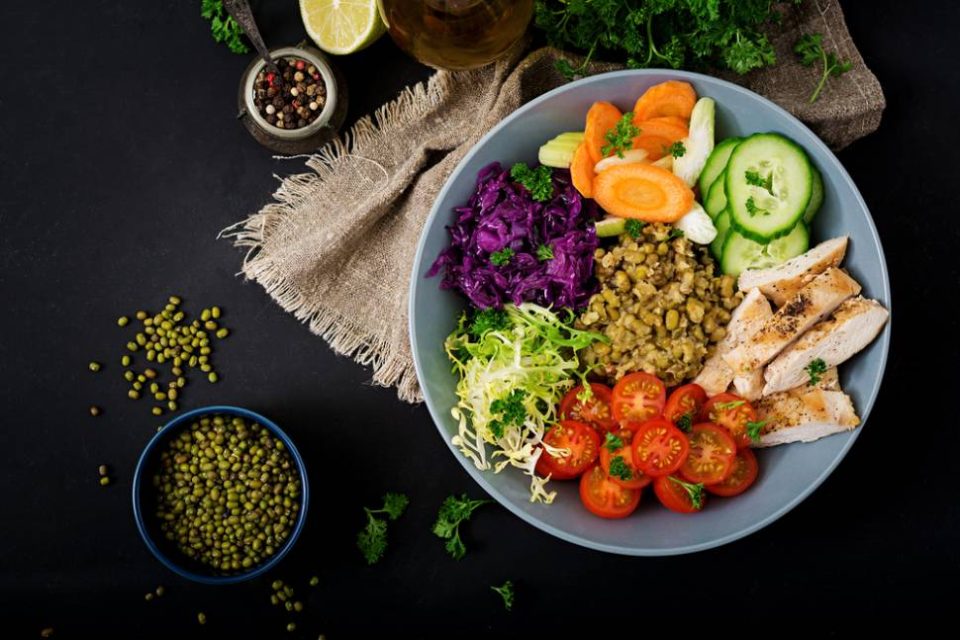Recent Findings On Proper Nutrition

Doctors have advised people to have many small meals during the day for many years. This piece of advice was based on how to retain a thinner body. The idea of many small meals is helpful because it allows the stomach to process the food and convert this food we take into useful ingredients that will nourish the body. In addition, it makes it harder for us to gain weight. How is that? Food was not abundant for most of the years that people lived on Earth. The whole body is programmed to survive even when this lack of food can threaten us with death. Assume you were a hunter back in the days when people lived in caves. Finding food is a hard task and often depends on pure luck. The optimal thing to do when you finally find food is to use as little as possible to cover your current needs and store the rest of the food in your body in the form of fat. Fat will prove more than useful when you run out of food. It is the fat that you will have on your body that will nourish you and finally keep you alive. As you may imagine, fat is more important than you ever thought. Remember that at this time we did not have a fridge to store food. Besides, if we decided to save food to eat later, other animals would have probably consumed it before we went ahead and did it. We had to find a clever way to store the food. Storing it on our bodies as fat was the perfect solution at the time.
If we lived in a place with constant access to food, there would be no reason to store it, and we would be thinner. The body is a clever mechanism, so let’s see how it reacts. When you do not give yourself food when you are hungry, the body does not understand that you are on a diet. It understands that you simply do not have access to food and goes into that alert mode of decreasing the metabolism. It will burn some fat now, but when it finds food again, it will try to turn as much as possible into fat to protect you from death when the conditions are hard again.
While eating many small meals is a perfect way to be thin, this does not mean it is the healthiest. See, while you were out there without food, the body would consume its own fat, but eventually, this would not be enough. At that point, the body starts to consume its own cells. However, smart as it is, the body never starts with healthy cells. It destroys the problematic cells that carry diseases and starts consuming them to feed the rest of the body, which is still healthy.
Today fasting is suggested to keep the body healthy. Fat may be something people want to get rid of, but it does not threaten human health unless it is too much. On the other hand, the whole body finds it easier and more helpful to be left without food for some time until it manages to restore its good health.
So what does one have to do in order to keep a healthy body but still be thin? The current tendency in science suggests that we should keep our stomachs empty for at least 12 hours while the optimal would be to keep them for 16 hours without food. At the same time, to avoid gaining weight, we should prefer eating food that is easy to digest so that the body does not move to the alert mode we described earlier. A nice suggestion is to avoid combining foods and keep a simple diet that will allow easy digestion.
In any case, we believe that the most important thing is to be able to enjoy the food and feel good when we eat it. This way, we have a clear sign we are doing the best for our souls, too, and not just the body. Science will often change its mind; remember to be happy regardless of what people tell you that is good for you.
Have you read?
Why Employers Should Grant More Flexibility to Increase Quality of Work by Joe Mull.
Becoming an Expert Trust Builder by Larry Jacobson.
How your money story impacts the way you treat your finances by Clare Wood.
The Human Factor: The Post Covid Era of Leadership & Employee Loyalty by Deepak Ohri.
THE ROLE OF MINDFULNESS AND HOW IT PREVENTS BURNOUT by Melo Calarco.
Bring the best of the CEOWORLD magazine's global journalism to audiences in the United States and around the world. - Add CEOWORLD magazine to your Google News feed.
Follow CEOWORLD magazine headlines on: Google News, LinkedIn, Twitter, and Facebook.
Copyright 2025 The CEOWORLD magazine. All rights reserved. This material (and any extract from it) must not be copied, redistributed or placed on any website, without CEOWORLD magazine' prior written consent. For media queries, please contact: info@ceoworld.biz








